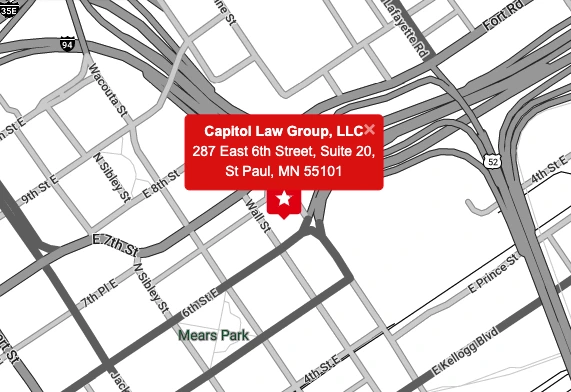Ask a St. Paul Criminal Defense Attorney: If I Failed a Chemical Test, Am I Going to Jail?

It is much easier for Ramsey County prosecutors to convict defendants who provided chemical samples. Minnesota has a per se DWI law. Defendants with a BAC above the legal limit, which is usually .08 for noncommercial drivers, are guilty as a matter of law.
However, these test results are inadmissible unless officers had probable cause to demand them. Additionally, like all other scientific tests, Breathalyzers and blood draws are not 100 percent accurate. If a St. Paul criminal defense attorney creates a reasonable doubt as to the result or the test process, most jurors will conclude that the test is flawed and the defendant is therefore not guilty.
Chemical Tests and Probable Cause
“Probable cause” is an ill-defined standard of evidence. However, it is somewhere between reasonable suspicion, which is essentially an evidence-based hunch, and beyond a reasonable doubt, which is the standard of proof at trial.
Therefore, initial suspicion of DWI does not constitute probable cause. Some of these physical symptoms include things like:
- Bloodshot eyes,
- Unsteady balance,
- Odor of alcohol, and
- Slurred speech.
These items are usually enough to warrant a question like “have you been drinking tonight?” And, officers can request that the defendant perform field sobriety tests based on this evidence. However, at best, things like unsteady balance and an odor of alcohol only establish consumption. Most people are impaired after one drink, but they are not intoxicated until they consume several drinks.
So, to establish probable cause, prosecutors need more evidence. Usually, the field sobriety tests, like the one-leg stand, provide this evidence. However, many defendants refuse to perform these tests. The Fifth Amendment is not limited to the right to keep one’s mouth closed. This provision also gives defendants the absolute right to refuse physical activities, like performing field sobriety tests or appearing in a lineup.
St. Paul Criminal Defense Attorneys and Breathalyzers
Breath tests make up the vast majority of chemical tests in DWI cases. The Supreme Court recently ruled that officers must have search warrants before they extract blood samples. Most officers do not bother with this extra paperwork, except on rare no-refusal weekends or other heightened enforcement periods.
Modern Breathalyzers have a number of bells and whistles. They look fancy. Additionally, police techs usually testify about scientific principles like electrochemical reactions and fuel cell triggers. However, today’s Breathalyzer uses the same basic technology as the Drunk-o-Meter, which first appeared in the 1930s. As a result, the Breathalyzer has some scientific flaws, such as:
- Unabsorbed Alcohol: Usually, alcohol goes from the mouth to the stomach to the liver to the blood. Since the digestive process is slower, any alcohol the defendant has consumed within the last couple of hours is not yet in the bloodstream. Breathalyzers do not account for this delay, so in these cases, the BAC estimate is artificially high.
- Temperature Calibration: Like many scientific instruments, Breathalyzers are temperature sensitive. And, the temperature changes quickly in Minnesota, especially during certain times of the year. Similarly, if the defendant has a low-grade fever, that might affect the BAC estimate.
- Mouth Alcohol: Legally, officers are supposed to watch defendants for at least fifteen minutes to ensure they do not burp, vomit, or belch. These activities flood the mouth with alcohol particles, skewing the BAC estimate. But courts have diluted this observation requirement, so officers cannot testify with any certainty in this area.
- Ketone Levels: Many people, such as smokers and diabetics, have high ketone levels in their bodies. Breathalyzers register these particles as ethanol. So, the Breathalyzer’s accuracy works against it in this area. The device might detect a bazillion particles, but not all of them are ethanol.
To drive home these flaws with jurors, St. Paul criminal defense attorneys frequently partner with chemists. These professionals have a lot more credibility than police breathalyzer techs. Breathalyzer flaws might significantly affect the outcome in borderline BAC cases, like a .08 or .09.
Legal Issues Regarding Blood Samples
Blood samples are a lot more accurate than breath samples. However, blood samples have some unique legal issues that St. Paul criminal defense attorneys can exploit.
As mentioned, officers must have search warrants. These warrants must be based on probable cause. And, if the defendant did not perform field sobriety tests, such evidence might be lacking. The officer’s subjective opinion is not enough.
Additionally, St. Paul criminal defense attorneys often demand retests. Frequently, the results from an independent laboratory test are much different than the ones police technicians claim they obtained.
Contact a Tenacious Lawyer
Adverse chemical test results are not conclusive proof of guilt. For a free consultation with an experienced St. Paul criminal defense attorney, contact Capitol City Law Group, LLC. Go online now, call us at 651-705-8580, or stop by 287 6th St E, Suite 20, St Paul, MN 55101.




